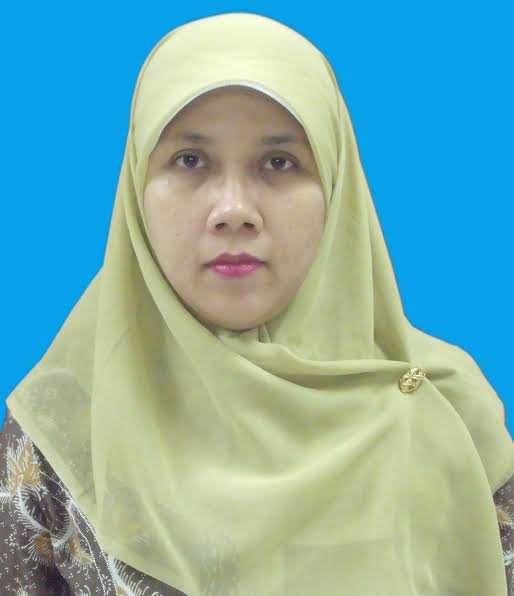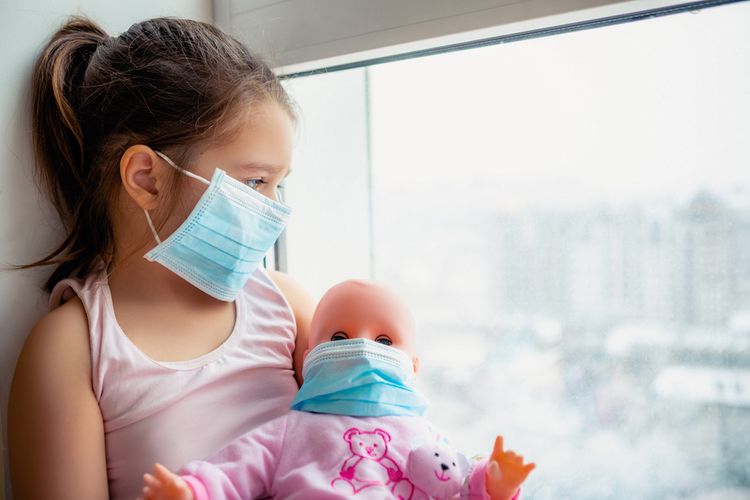UNAIR NEWS- Covid-19 has affected not only adults and elderlies, but children are also vulnerable to the infection. Official data released in June 2021 showed that children who were tested positive for Covid-19 reached 250.000. The child mortality rate due to Covid-19 has even reached 1.2% of the total number. The Indonesian Pediatrician Association (IDAI) also stated that 50% of child deaths due to Covid-19 were under the age of 5.
Dr. Retno Asih Setyoningrum, dr., Sp. A(K) said that the symptoms of Covid-19 in children are very diverse, ranging from mild to severe symptoms that threaten their life. “The symptoms depend on the phase of the illness, previous health condition, the presence of comorbid diseases, as well as other specific features such as congenital abnormalities,” said Dr. Retno.
However, fever is a common symptom in children. “Other symptoms are symptoms of acute respiratory infections, such as fever, cough, runny nose and shortness of breath. However, some children do not have specific respiratory symptoms but have been exposed to Covid-19 with symptoms in the digestive tract such as abdominal pain, diarrhea, and vomiting. There is even the emergence of systemic symptoms or Multisystem Inflammatory Syndrome in Children (MIS-C),” explained Dr. Retno, a lecturer at the Department of Pediatrics, Faculty of Medicine, Universitas Airlangga.

Handling children with Covid-19 depends on the degree of the illness. In some certain cases, it can be done by self-isolation. But some conditions must be met, such as asymptomatic; experiencing mild symptoms such as cough, runny nose, fever, diarrhea, vomiting, and rash; the child is active and can eat or drink; apply cough etiquette; monitor the symptoms or complaints; perform body examination twice a day in the morning and evening, and the house or room has good ventilation.
“The medical equipments that must be provided at home when children are exposed to Covid-19 are thermometers and oximeters,” said Dr. Retno. Several medicines should also be prepared at home, such as fever medicine, vitamin C (1-3 years a maximum of 400mg/day; 4-8 years maximum of 400mg/day; 9-13 years a maximum of 1200mg/day; 14-18 years maximum of 1800mg/day), zinc 20 mg/day given for 14 days; vitamin D3 (aged less than 3 years 400 IU/day; children 1000 IU/day; adolescents 2000 IU/day; obese adolescents 5000 IU/day).
Retno also emphasized that in handling children who are self-isolating, consuming additional nutrients such as milk sold in the market is unnecessary. “Essentially, the food is nutritious, not limited only to certain milk,” said Dr. Retno.
However, there are some complaints that parents must be aware of when caring for a child in self-isolation. Parents should be aware when the child sleeps a lot, breathes fast with hard inhalation shown in the chest and nose, oxygen saturation is less than 95%. Also, if the children have red eyes, rash, swollen neck, fever for more than seven days, can’t eat and drink, have sunken eyes, decreased urination, and decreased consciousness. “If the child has these symptoms, immediately take him or her to the hospital,” concluded Dr. Retno.
Author: Icha Nur Imami Puspita
Editor : Khefti Al Mawalia (AC/AP)





